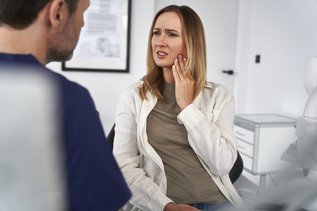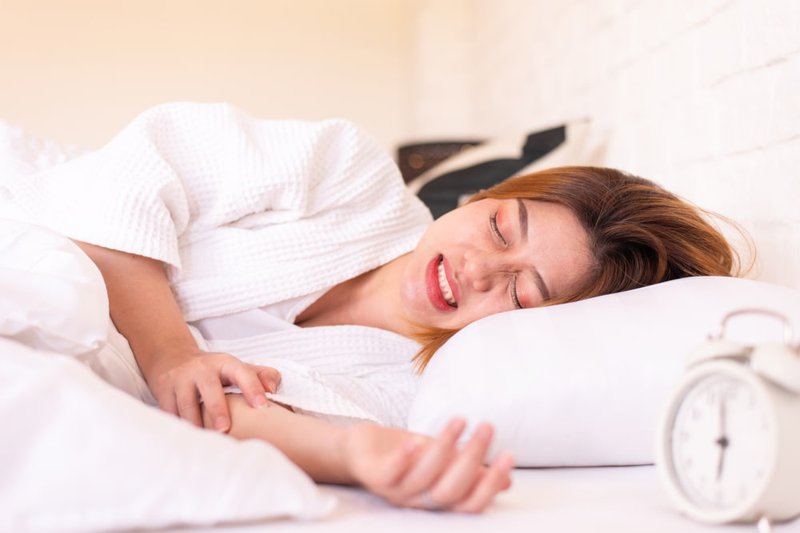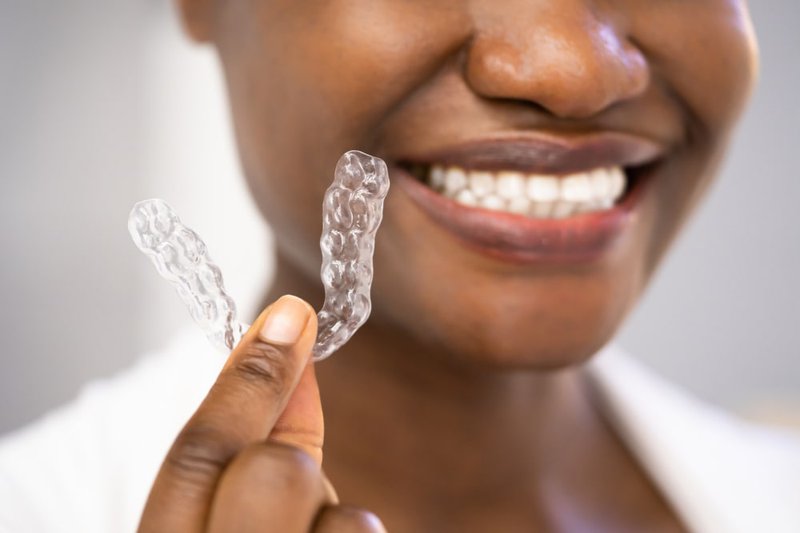
Teeth Grinding (Bruxism): Causes, Effects, and Treatment Options
Key Takeaways
- Teeth grinding (bruxism) often happens during sleep, making it hard to detect by the person themselves.
- Common causes include stress, sleep disorders, and dental misalignment.
- Long-term effects can be serious, from enamel erosion to TMJ disorders.
- Treatment options range from lifestyle changes to dental guards and even Botox.
- Early diagnosis and regular check-ups help prevent serious damage.
Do You Grind Your Teeth Without Realizing It?
Let’s start with a quick self-check. Have you ever woken up with:
- A sore jaw or neck?
- Headaches that seem to come out of nowhere?
- Unexplained damage or flattening of your teeth?
If so, you might be experiencing bruxism—a condition where people unconsciously grind or clench their teeth, often during sleep.
What’s surprising is how many people have no idea they’re doing it. In fact, teeth grinding in sleep is one of the most underreported dental issues because, well—you’re asleep when it happens.
What Exactly Is Bruxism?
In simple terms, bruxism is the habitual grinding or clenching of teeth. It can happen during the day (awake bruxism) or at night (sleep bruxism). Both can lead to serious problems, but the nighttime version is especially tricky to detect.
Bruxism's meaning goes beyond just grinding—it can involve jaw clenching, facial tension, and even subconscious biting. While daytime bruxism is often linked to stress or focus, nighttime bruxism may be tied to deeper health issues like sleep disorders.
Why Do You Grind Your Teeth? (And How to Find the Cause in Your Case)
There isn’t one single reason people grind their teeth. But here are the most common bruxism causes.
1. Stress and Anxiety
The most well-known trigger. Emotional stress can lead to muscle tension—including in your jaw. Meditation, deep breathing, or even journaling before bed can help reduce it.
2. Sleep Disorders
Sleep apnea is a big one. Many patients don’t realize their grinding teeth in sleep could be a side effect of interrupted breathing. If you snore or wake up often, a sleep study might be worth it.
3. Dental Issues
A misaligned bite, missing teeth, or poor dental work can all cause bruxism. When your teeth don’t align properly, your jaw muscles may overcompensate.
4. Lifestyle Factors
High caffeine intake, alcohol consumption, and even some medications (like antidepressants) are linked to increased grinding. These might not be direct causes—but they can make things worse.
The Damage Bruxism Can Do to Your Teeth and Health
Let’s talk about the consequences.
Teeth grinding damage builds up over time. It starts small—like hairline fractures or enamel wear—but can lead to major dental problems, such as:
- Flattened or chipped teeth
- Increased tooth sensitivity
- Loose teeth in severe cases
Then there’s the jaw. Grinding puts intense pressure on your temporomandibular joint (TMJ), often causing pain, stiffness, or even a clicking noise when you chew or speak. Frequent headaches and neck aches are common.
And don’t forget to sleep. If you're grinding all night, you're not getting restorative rest—and neither is your partner.

How to Know for Sure If You Have Bruxism
Wondering how dentists figure it out?
Dentists Look For:
- Worn enamel or flattened teeth
- Indentations on the tongue or inside of the cheeks
- Jaw tenderness or restricted movement
Simple Self-Checks:
- Do your teeth feel sore in the morning?
- Are your molars unusually flat?
- Does your jaw feel tight or tired when you wake up?
If the signs are unclear, your dentist might recommend a sleep study—especially if sleep apnea is suspected.
Fixing the Problem: The Best Treatment Options for You
Small Changes That Make a Big Difference
Sometimes, small shifts in your lifestyle can drastically improve your symptoms:
- Stress Management: Try yoga, meditation apps, or CBT therapy. Reducing stress often reduces grinding.
- Caffeine & Alcohol: Cut back, especially before bed.
- Sleep Hygiene: Set a consistent bedtime, dim the lights, and avoid screens 1 hour before sleep.
If you're looking for natural relief, check out this guide on how to stop grinding teeth in sleep naturally.
Dental Solutions: Protecting Your Teeth
Nightguards—also known as occlusal splints—are custom-moulded devices worn during sleep. They don’t stop the grinding, but they protect your teeth from damage.
“A well-fitted nightguard can significantly reduce the effects of bruxism and protect against long-term damage,” says Dr. Rob Eisen, DDS, of North York Smile Centre.
In some cases, orthodontic treatment may help if your bite is the root cause.
Medical Treatments for Severe Cases
For more intense bruxism, consider:
- Botox injections: These relax overactive jaw muscles and have shown promising results in reducing grinding frequency.
- Medications: Muscle relaxants or anti-anxiety meds may be prescribed short-term.
- Alternative therapies: Biofeedback and acupuncture are being explored as emerging bruxism treatment options.

Can You Prevent Bruxism Altogether?
Complete prevention isn’t always possible, but you can greatly reduce the risk.
Here’s what works:
- Minimize stress with consistent mental health practices
- Avoid caffeine or alcohol close to bedtime
- Maintain a healthy sleep routine
And don’t skip dental checkups. Early signs of teeth grinding are easier to manage than later-stage damage.
Get Expert Care at North York Smile Centre
At North York Smile Centre, our dentists are trained in advanced bruxism treatment techniques—from custom night guards to comprehensive bite analysis.
Using digital scans and jaw tracking tools, we get to the root cause of your grinding—not just the symptoms.
“We believe in proactive care. With the right treatment, most bruxism cases are manageable—and often reversible,” says Dr. Jerry Jesin, DDS, at Smile Centre, North York.
Book your consultation today at smile-by-design.ca/contact to start protecting your teeth and your sleep.
FAQs: Common Questions About Teeth Grinding (Bruxism)
Q: What’s the difference between clenching and grinding?
A: Clenching is when you tightly press your teeth together. Grinding involves moving them back and forth—often causing more wear.
Q: Can bruxism go away on its own?
A: Sometimes it does—especially in children. But in adults, treatment is usually needed to avoid long-term damage.
Q: What is the most effective treatment?
A: A custom night guard combined with stress management and sleep hygiene often delivers the best results.
Q: Is bruxism dangerous?
A: Left untreated, yes. It can lead to tooth damage, gum recession, and even tooth loss.
Sources & Further Reading

